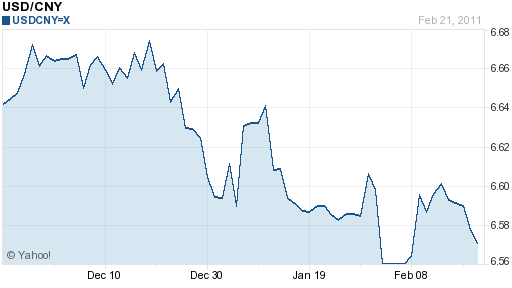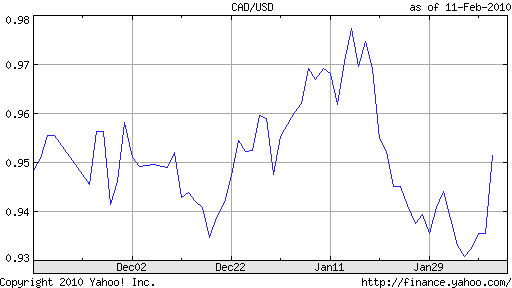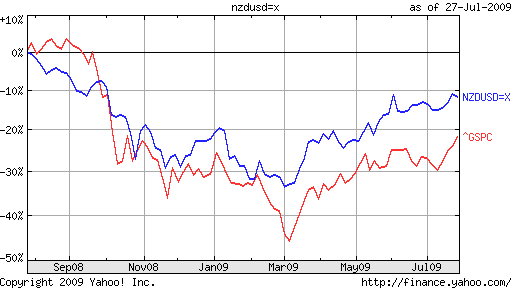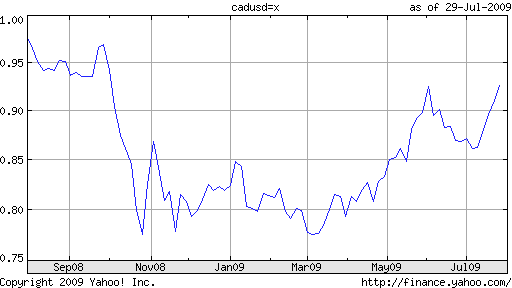Motivated both by politics and pragmatism, “China’s top foreign-exchange official said the nation will keep buying Treasuries and endorsed the dollar’s global role. Treasuries form ‘an important element of China’s investment strategy for its foreign-currency reserves,’ she said at a briefing in Beijing today. ‘We will continue this practice.’ ” The economic fortunes of China and the US have become increasingly intertwined over the last decade, such that China has come to depend on exports to the US to drive economic growth, while the US simultaneously depends on China to fund its fiscal and current account deficits. As a result, “about two-thirds of China’s nearly $2 trillion in reserves is parked in dollar assets, primarily U.S. government and other bonds.”
In addition, there doesn’t currently exist a viable alternative to US Treasury securities, nor to investing in the US, for that matter. China’s attempt at diversifying into corporate bonds and equities was extremely ill-timed, having been implemented just prior to the puncture of the real estate and stock market bubbles. Including the collapse in the value of its high-profile investments in the Blackstone Group and Morgan Stanley, total paper losses are estimated at a whopping $80 Billion. Investments in other currencies and markets, meanwhile, probably would have yielded similarly poor returns. The market for gold- mulled by some as a theoretical alternative- is even more volatile and “not large enough to absorb more than a small proportion of China’s reserves.”
As a result, China’s forex reserve diversification strategy is likely to proceed along two lines: change in duration of loans, and investments in natural resources. “The risk of short-term national debt is comparatively more controllable. China increased its holding of short-term US bonds by $40.4 billion, $56 billion, and $38 billion in September, October and November, respectively. At that time, China began to sell long-term government debt.” Through its affiliates meanwhile, China’s Central Bank is cautiously making stealthy forays into natural resources; see its recently-acquired a $20 Billion stake in Rio Tinto, an aluminum company, as evidence of this strategy.
Of course, China has announced tentative support for loaning money to the IMF and backing an ‘international’ reserve currency that would serve as an alternative to the Dollar. Given that this is probably many years away, however, it has little choice but to continue to hold Treasuries and the like. In the words of a high-ranking Chinese official: “We are in the middle of a crisis right now, and the priority for foreign exchange reserves is to minimize losses.”




0 comments: